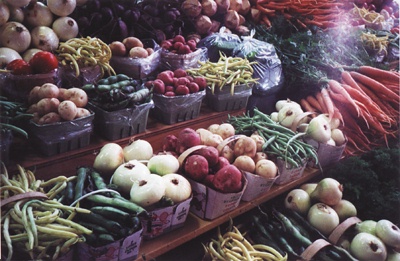All Nonfiction
- Bullying
- Books
- Academic
- Author Interviews
- Celebrity interviews
- College Articles
- College Essays
- Educator of the Year
- Heroes
- Interviews
- Memoir
- Personal Experience
- Sports
- Travel & Culture
All Opinions
- Bullying
- Current Events / Politics
- Discrimination
- Drugs / Alcohol / Smoking
- Entertainment / Celebrities
- Environment
- Love / Relationships
- Movies / Music / TV
- Pop Culture / Trends
- School / College
- Social Issues / Civics
- Spirituality / Religion
- Sports / Hobbies
All Hot Topics
- Bullying
- Community Service
- Environment
- Health
- Letters to the Editor
- Pride & Prejudice
- What Matters
- Back
Summer Guide
- Program Links
- Program Reviews
- Back
College Guide
- College Links
- College Reviews
- College Essays
- College Articles
- Back
Benefits of Becoming a Vegetarian
A vegetarian is a person that doesn’t consume meat or meat byproducts in his or her diet. Vegetarianism is the practise of this diet. People have many reasons of becoming a vegetarian; it could be religious, because of health problems or intolerances, concern for animals and the environment, or having a healthier diet. A lot of people, from citizens to doctors, have also started arguments of how the elimination of meat from our diet could save the environment and one's health, which made others think about becoming a vegetarian.
A very strong argument is that the human body isn’t made for eating meat. Starting from where the digestion process begins, the mouth, human teeth aren’t suited for eating meat. Our teeth are short and a lot smaller than other mammals that eat meat. Carnivore intestines are short and their stomachs are very strong. Human intestines are longer, more like herbivores. It’s true that we have been eating meat for a long time and some might say that meat hasn’t shown any negative effects on their health. That is something positive which means the products they are consuming are healthy and safe. In other cases meat can worsen an organ’s function, cause diabetes and obesity. But think about the environment and the animals themselves. Animals are living things and just like humans, have the right to live.
Related to our health, vegetarianism is healthiest diet, because it provides vitamins and prevents diseases. “Vegetarian diets are also tied to a lower risk of metabolic syndrome, diabetes, cancer, and lower blood pressure, and they may fend off childhood obesity” (Newman). Meat also contains a lot of protein which is good for your body as it’s the building block of bones, muscles, skin and blood. But protein in large amounts can be dangerous for your health. “Eating too much protein may also increase your risk of developing heart disease and may worsen kidney function in people with kidney disease because the body can have trouble eliminating all the waste products of protein metabolism” (Newkirk). Yet, protein is found in other foods such as beans, almonds, broccoli. The amount of protein is a lot smaller but a balanced diet will keep you and your body healthy.
“Besides, if the meat itself isn’t bad enough to eat for you, think about all the bad things that factory farmers feed to the animals and everything the animals ingest; because you are eating the animals, you are basically ingesting what they ingest, and most of what they eat isn't healthy. Think of the hormones, antibiotics, and pesticides that you are going to be ingesting. That cannot be healthy” (Daffron).
Apart from your health, meat negatively affects the environment. Meat is not sustainable and hunting animals might lead to extinction that will decrease a species population. Meat is also one of the main factors for pollution. “The new analysis shows that while meat and dairy provide just 18% of calories and 37% of protein, it uses the vast majority – 83% – of farmland and produces 60% of agriculture’s greenhouse gas emissions” (Carrington).
Many people who today are vegetarians are very happy with the improvement that their diet brought to their lifestyle and health. In very small amount and time, improvement can also come to the environment and animals. If more people become vegetarians, so many animal lives would be saved, environmental conditions and our health would improve a lot.

Similar Articles
JOIN THE DISCUSSION
This article has 0 comments.
